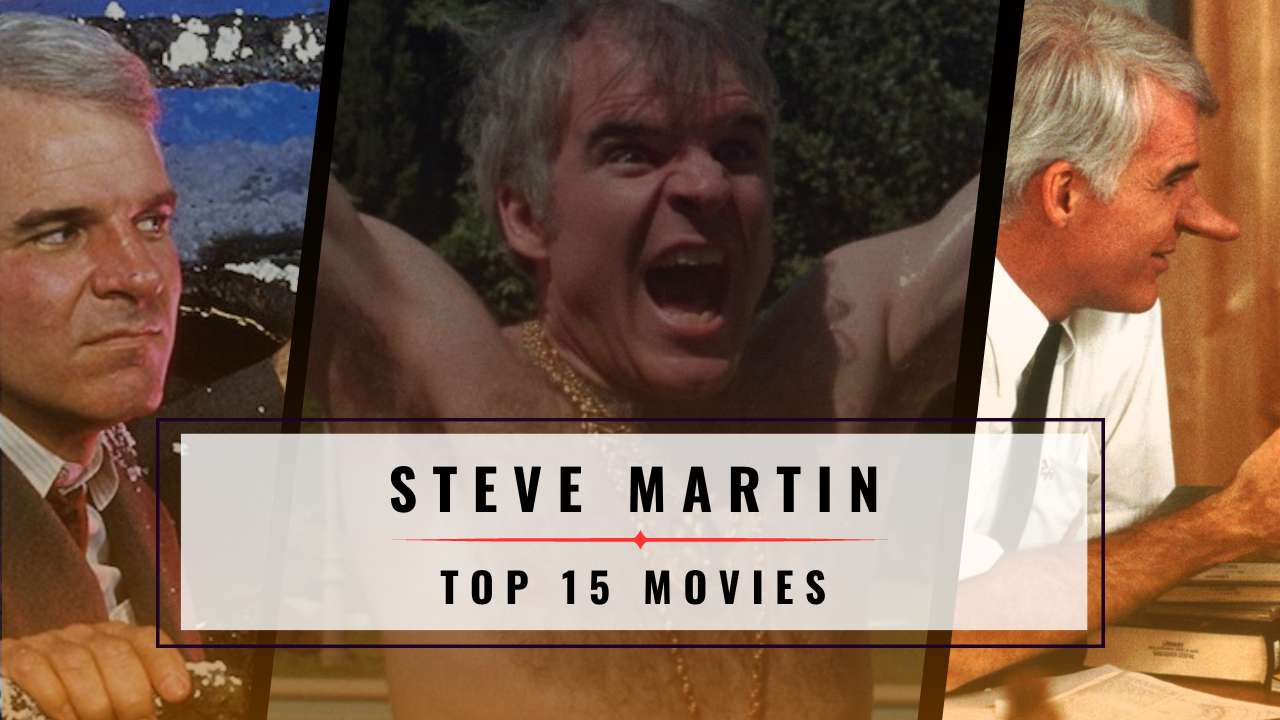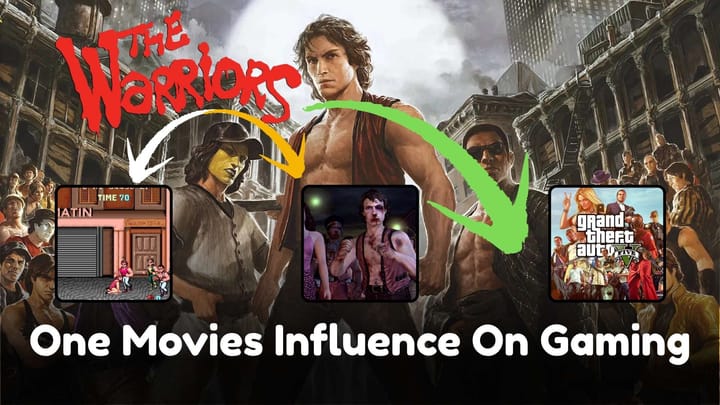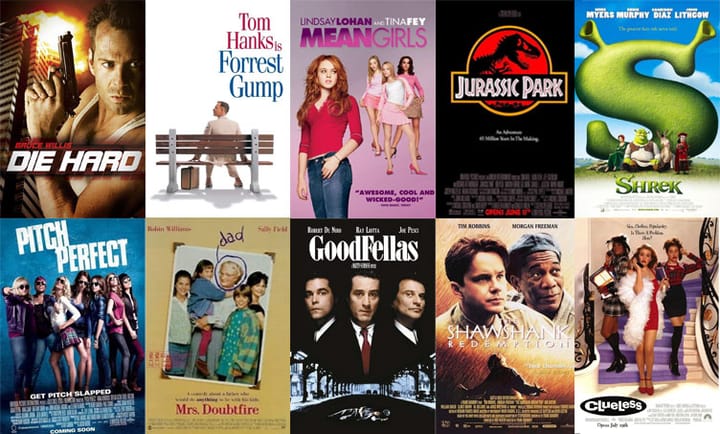80s Movies That Have Not Aged Well: Why Time Has Not Been Kind

Hey there, welcome to Rewind Zone, the ultimate destination for all your nostalgic movie cravings! Here at our beloved blog, we love to immerse ourselves in the enchanting realm of classic films and iconic actors from yesteryears. Today, we invite you on a delightful journey down memory lane as we explore a carefully curated selection of marvelous 80s movies. However, as we embark on this adventure, we must address a bittersweet truth – the passage of time has revealed certain aspects of these films that may not have stood the test of time. With a critical eye and a compassionate spirit, we dive deep into the heart of these cinematic treasures, acknowledging their potential flaws and exploring the impact of cultural transformation on their significance in our modern era.
It is important that we approach these conversations with a sense of openness, understanding, and a commitment to progress. By engaging in thoughtful dialogue and critically examining the media we consume, we can gain valuable insights and foster an environment that promotes inclusivity and respect. Let us use this opportunity to address the shortcomings of the films listed, encouraging meaningful discussions that contribute to a more compassionate and enlightened society.
Howard the Duck (1986)
Main Issue: Panned for its bizarre plot and duck-human romance.
Howard the Duck, a sci-fi comedy directed by the talented Willard Huyck, confidently graced the screens in 1986, carrying high expectations. Regrettably, the film encountered remarkably negative response from both critics and audiences. The central concern that has persistently shadowed Howard the Duck over the years revolves around its distinctive premise: a humanoid duck hailing from another planet, entangled in a string of misadventures on Earth. Despite its ambitious attempt to seamlessly blend humor, science fiction, and romance, the film fell short of its mark, leaving viewers perplexed.
Moreover, the unconventional romance between Howard and the captivating human woman named Beverly, portrayed flawlessly by the remarkable Lea Thompson, has become a subject of rigorous examination. The film's portrayal of their relationship has raised poignant inquiries regarding consent and the boundaries of interspecies romance. Within the context of today's ever-evolving social norms, Howard the Duck stands even more out of touch and disconcerting.

Trading Places (1983)
Main Issue: Criticised for its racial stereotypes.
Trading Places, a side-splitting comedy helmed by the talented director John Landis, gracefully danced into the spotlight upon its momentous release in the year 1983, eliciting resounding praise from discerning critics. This exceptional film artfully weaves a tale around the intersecting lives of Louis Winthorpe III, brilliantly portrayed by the incomparable Dan Aykroyd, and the quick-witted Billy Ray Valentine, brought to life with unrivaled charisma by the legendary Eddie Murphy. Their paths collide and intertwine due to a high-stakes wager orchestrated by two affluent brothers, sparking a series of uproarious and unpredictable events.
While Trading Places remains etched in our collective memory as a source of uproarious laughter and the embodiment of perfect comedic timing, it is not without its shortcomings. In recent years, the film has been subject to critical examination, particularly for its perpetuation of racial stereotypes. Certain scenes within the film have been rightly scrutinized for their offensive depiction of African-American characters, inadvertently reinforcing harmful stereotypes that undermine progress and equality. In the current climate of heightened awareness and increased sensitivity surrounding racial issues, Trading Places regrettably fails to withstand scrutiny and, as a result, has rightfully garnered criticism.

RECOMMENDED:

Sixteen Candles (1984)
Main Issue: Highlighted for promoting problematic teenage behaviour.
Sixteen Candles, a delightful coming-of-age comedy skillfully helmed by the talented director John Hughes, captured the hearts of countless teenagers when it graced the silver screen in 1984. However, as we view the film through the lens of modern sensibilities, certain aspects of its portrayal of teenage behavior and relationships have come under careful scrutiny.
One of the primary concerns revolves around the character of Long Duk Dong, portrayed by the talented Gedde Watanabe, an exchange student from China. Regrettably, his depiction unwittingly reinforces racial stereotypes and exhibits a lack of cultural sensitivity. Furthermore, the film inadvertently normalizes and even romanticizes non-consensual behavior, particularly in relation to Samantha, portrayed brilliantly by the talented Molly Ringwald, the object of the main character's affection. The film's regrettable failure to address these critical issues has, unfortunately, cast a shadow over its once-esteemed reputation and rendered it a subject of critique in contemporary discussions.

Overboard (1987)
Main Issue: Raised concerns about consent and gender dynamics.
Overboard, a romantic comedy directed by Garry Marshall, presents a controversial premise that has faced increasing scrutiny as societal norms have evolved. The film tells the story of a wealthy woman named Joanna (played by Goldie Hawn), who loses her memory after falling off a yacht, and a working-class man named Dean (played by Kurt Russell), who convinces her that they are married.
While Overboard was initially embraced for its charming performances, critics have highlighted the problematic nature of the central relationship. Dean's manipulation of Joanna's amnesia raises concerns about consent, while the portrayal of gender dynamics reinforces outdated stereotypes. These issues make Overboard an uncomfortable watch in the present day, overshadowing its comedic intentions.

Revenge of the Nerds (1984)
Main Issue: Under scrutiny for its portrayal of non-consensual acts.
Revenge of the Nerds, a comedy film directed by Jeff Kanew, follows a group of socially marginalized college students who form their own fraternity to assert their identity and stand up against their bullies. While the film was initially celebrated for its underdog narrative, it has faced backlash for portraying non-consensual acts and normalising sexual harassment.
One particular scene in the film involves a male character disguising himself as his love interest's boyfriend and engaging in sexual activity without her knowledge or consent. This scene, along with other instances in the movie, has rightly been criticised for perpetuating harmful behaviour and promoting the idea that such actions are acceptable. In today's climate, Revenge of the Nerds raises serious concerns about consent and the boundaries of acceptable behaviour.

RECOMMENDED:

Tron (1982)
Main Issue: Critiqued for its limited special effects.
Tron, a science fiction film directed by Steven Lisberger, was ahead of its time in terms of its visual concept and groundbreaking use of computer-generated imagery (CGI). However, as technology has advanced, the film's once-innovative special effects now appear dated and limited in comparison to modern standards.
Tron's visual aesthetic, which aimed to depict a digital world inside a computer, was ambitious for its time but lacks the sophistication and realism expected by today's audiences. While the film's legacy as a precursor to the use of CGI in cinema is recognised, it can be challenging for contemporary viewers to fully appreciate Tron's visual impact due to the advancements made in special effects over the years.

Earth Girls Are Easy (1988)
Main Issue: Challenged for its objectification of women.
Earth Girls Are Easy, a musical romantic comedy directed by Julien Temple, tells the story of a valley girl named Valerie (played by Geena Davis), who encounters three furry aliens and embarks on a journey of self-discovery and love. While the film aimed to be a lighthearted and humorous take on romantic entanglements, it has faced criticism for its objectification of women and perpetuation of shallow beauty standards.
The portrayal of the three aliens, who transform into attractive men, reinforces the idea that physical appearance is the primary measure of a person's worth. The film's reliance on objectifying women for comedic effect undermines its potential to offer meaningful commentary or challenge societal norms. In today's more inclusive and body-positive climate, Earth Girls Are Easy fails to align with contemporary values.

Porky's (1981)
Main Issue: Accused of perpetuating misogyny and sexual harassment.
Porky's, a raunchy comedy directed by Bob Clark, gained popularity for its outrageous humour and depiction of teenage antics. However, the film has faced significant backlash for portraying misogyny and sexual harassment.
Porky's relies heavily on crude jokes, objectification of women, and inappropriate behaviour, often involving unwanted advances and non-consensual actions. The film's treatment of female characters perpetuates harmful stereotypes and normalises abusive behaviour. In a time when conversations surrounding consent and respectful relationships are at the forefront, Porky's fails to align with contemporary sensibilities and has lost favour among audiences seeking more responsible and inclusive storytelling.


Iron Eagle (1986)
Main Issue: Criticised for its jingoistic themes and simplistic narratives.
Iron Eagle, an action film directed by Sidney J. Furie, revolves around a teenager named Doug Masters who, with the help of his father's friends, plans a daring rescue mission to save his father, a pilot who has been captured by a Middle Eastern dictator. While the film was intended to be an adrenaline-fueled adventure, it has drawn criticism for its jingoistic portrayal of international relations and its simplistic narrative approach.
Iron Eagle presents a black-and-white worldview where the American protagonist takes matters into his own hands to defeat the enemy and save the day. The film's portrayal of foreign cultures and political conflicts is often shallow and one-dimensional, lacking the nuance and complexity necessary for a more thoughtful examination of global issues. In today's more interconnected world, audiences seek narratives that offer a deeper understanding of geopolitical dynamics rather than reinforcing simplistic notions of good versus evil.

Teen Wolf (1985)
Main Issue: Problematic gender dynamics and Stereotyping
Teen Wolf, a comedy fantasy film directed by Rod Daniel, tells the story of Scott Howard, a high school student who discovers he has the ability to transform into a werewolf. While the film was intended to be a lighthearted exploration of teenage identity and self-acceptance, it has been called out for its problematic gender dynamics and reinforcing of stereotypes.
In Teen Wolf, the female characters often serve as props in the narrative, existing primarily to support the male protagonist's journey and romantic interests. The film reinforces traditional gender roles and perpetuates the idea that a woman's value is determined by her desirability to men. Furthermore, the film's treatment of consent is questionable, with instances where Scott's werewolf persona takes advantage of female characters without their full awareness or consent. Such portrayals undermine the importance of consent and respectful relationships. In today's climate, Teen Wolf's depiction of gender dynamics falls short of what is expected and desired in storytelling.

Conclusion
The 1980s produced a plethora of films that captivated audiences with their unique charm and cultural impact. However, not all of these films have aged well, with some facing criticism for their outdated themes, problematic portrayals, and failure to align with contemporary values. As societal norms and perspectives evolve, it becomes crucial to reevaluate these films through a modern lens.
As we revisit these films from the 1980s, it is essential to engage in a critical analysis of their legacy and consider the impact of cultural shifts on our perception of them. Nostalgia can be a powerful force, but we must also recognise the need for progress and a more inclusive approach to storytelling. By reevaluating these films and engaging in conversations about their flaws, we can move towards a more thoughtful and responsible appreciation of cinema's past.
More Recommendations from The Rewind Zone
Please consider Subscribing to this site (It's FREE!) to get your weekly fix of Movie Nostalgia
Please show your support to our enterprise by checking out our Youtube channel, every view keeps us moving...
Happy viewing!





Comments ()